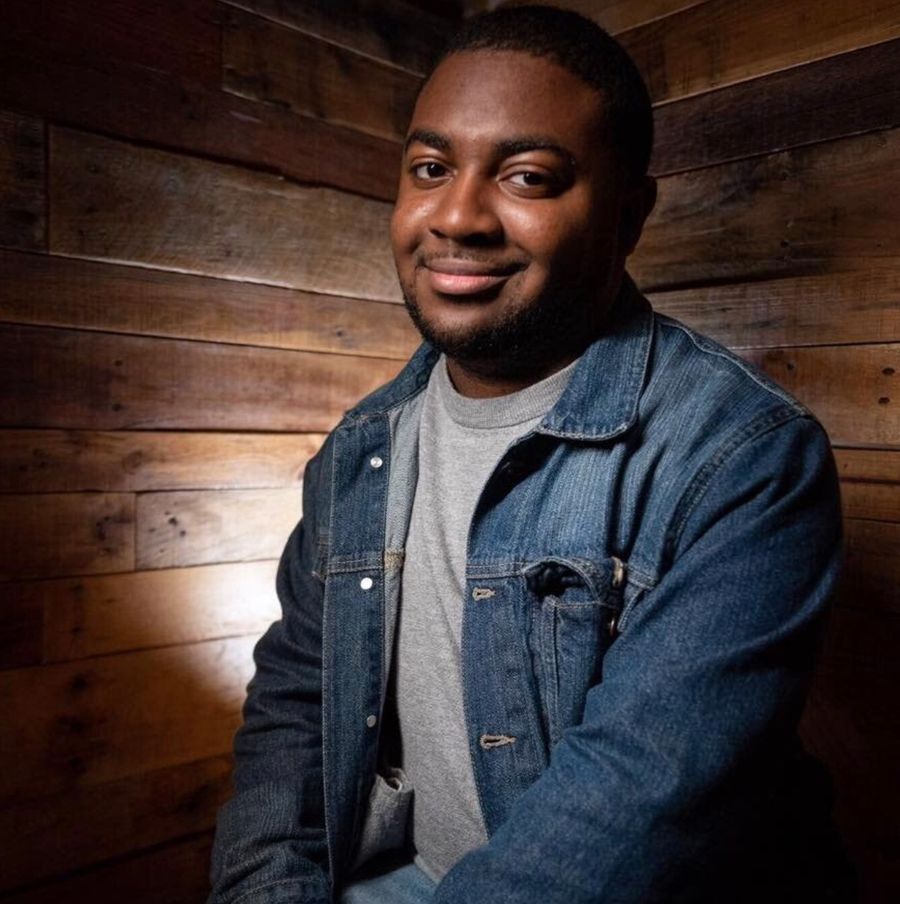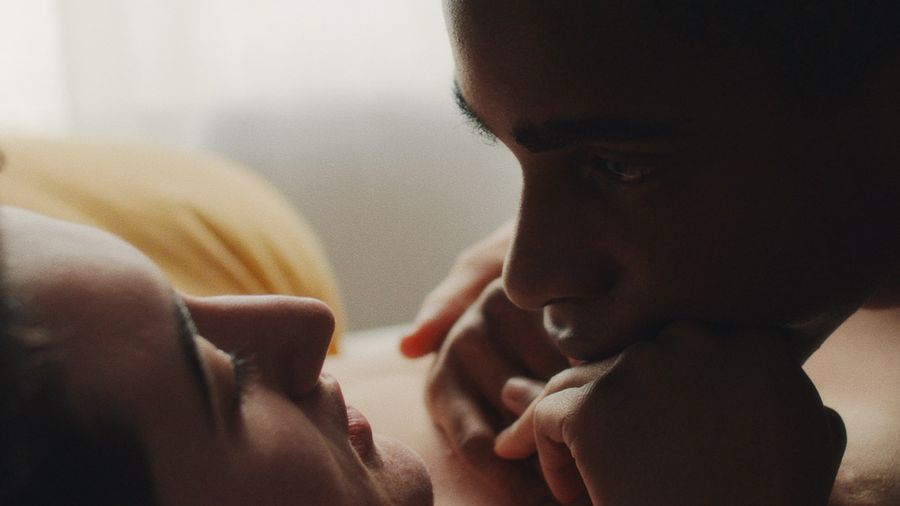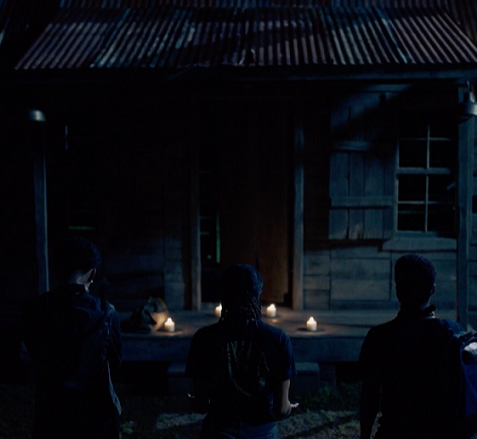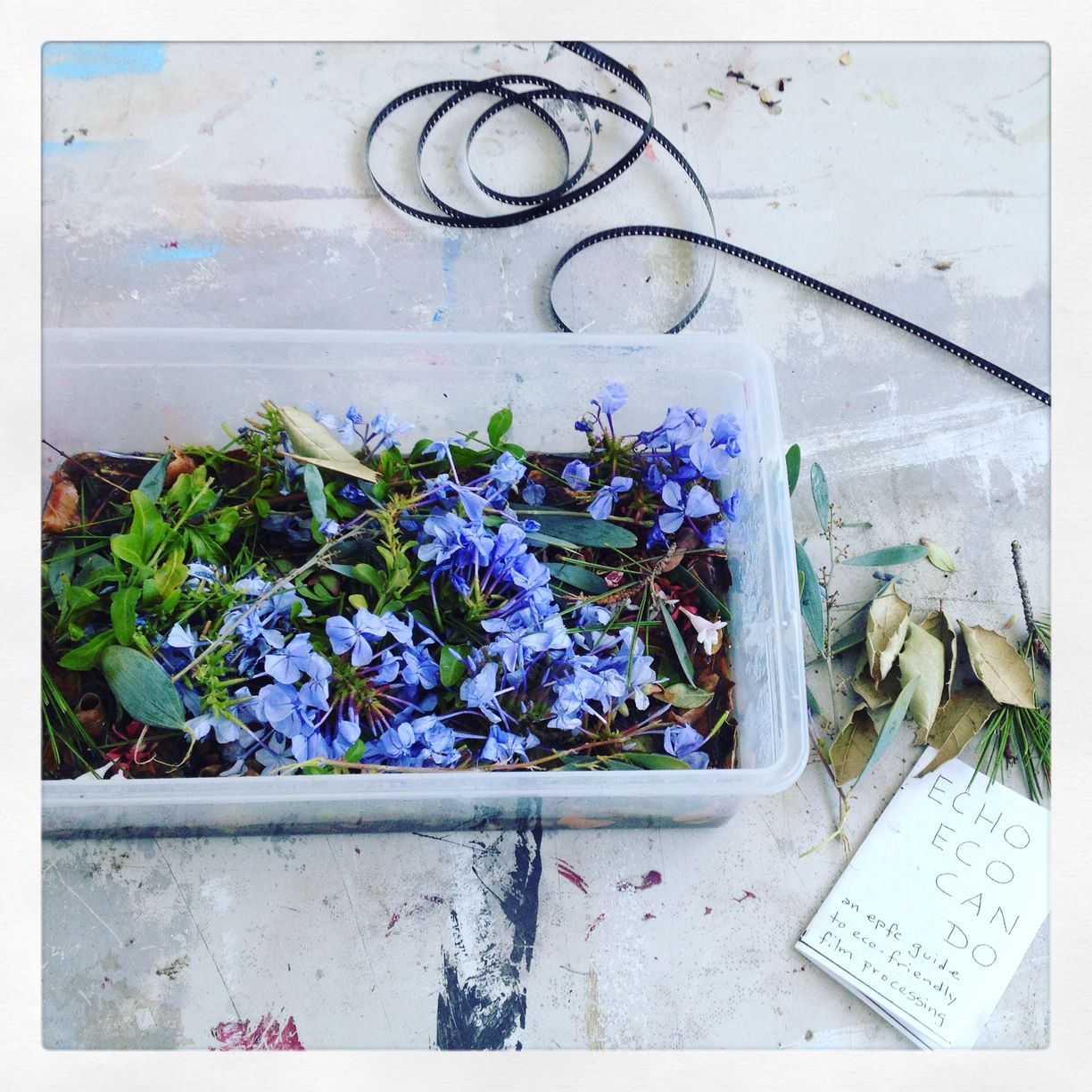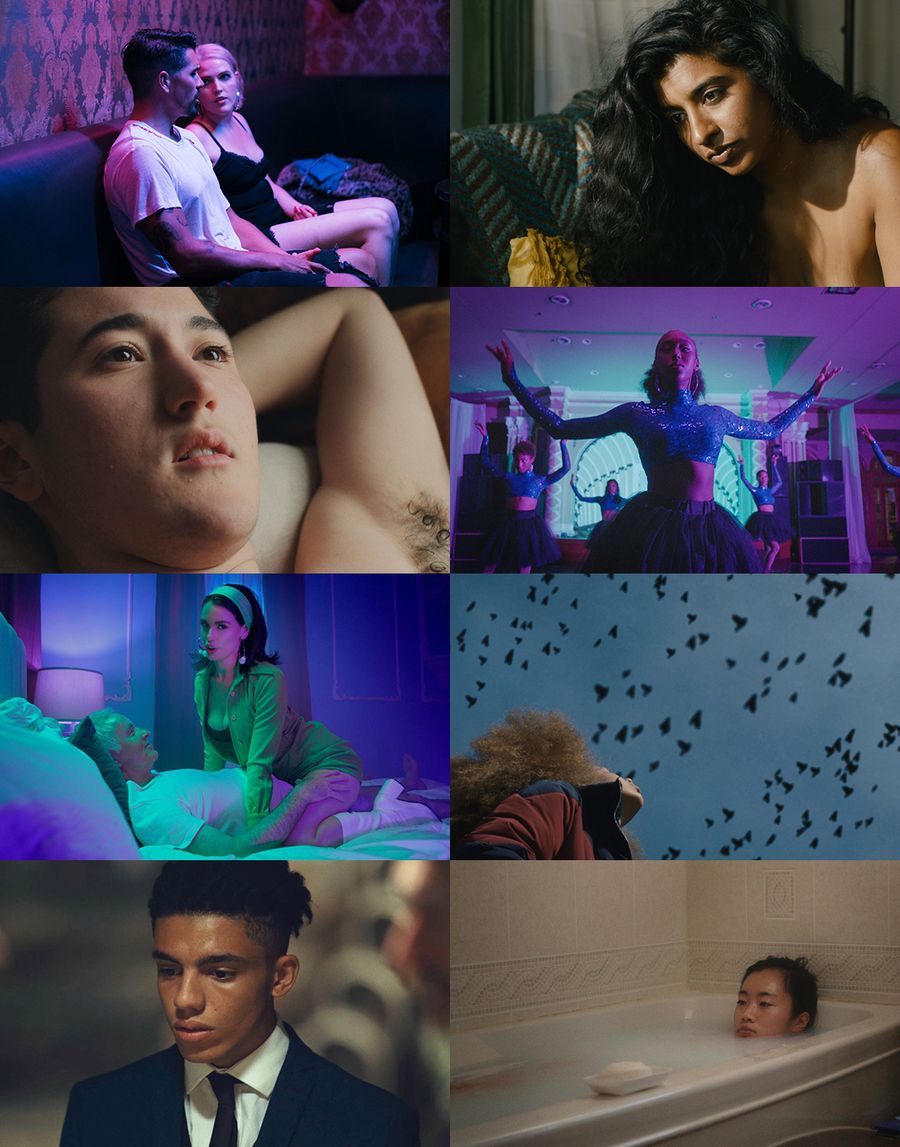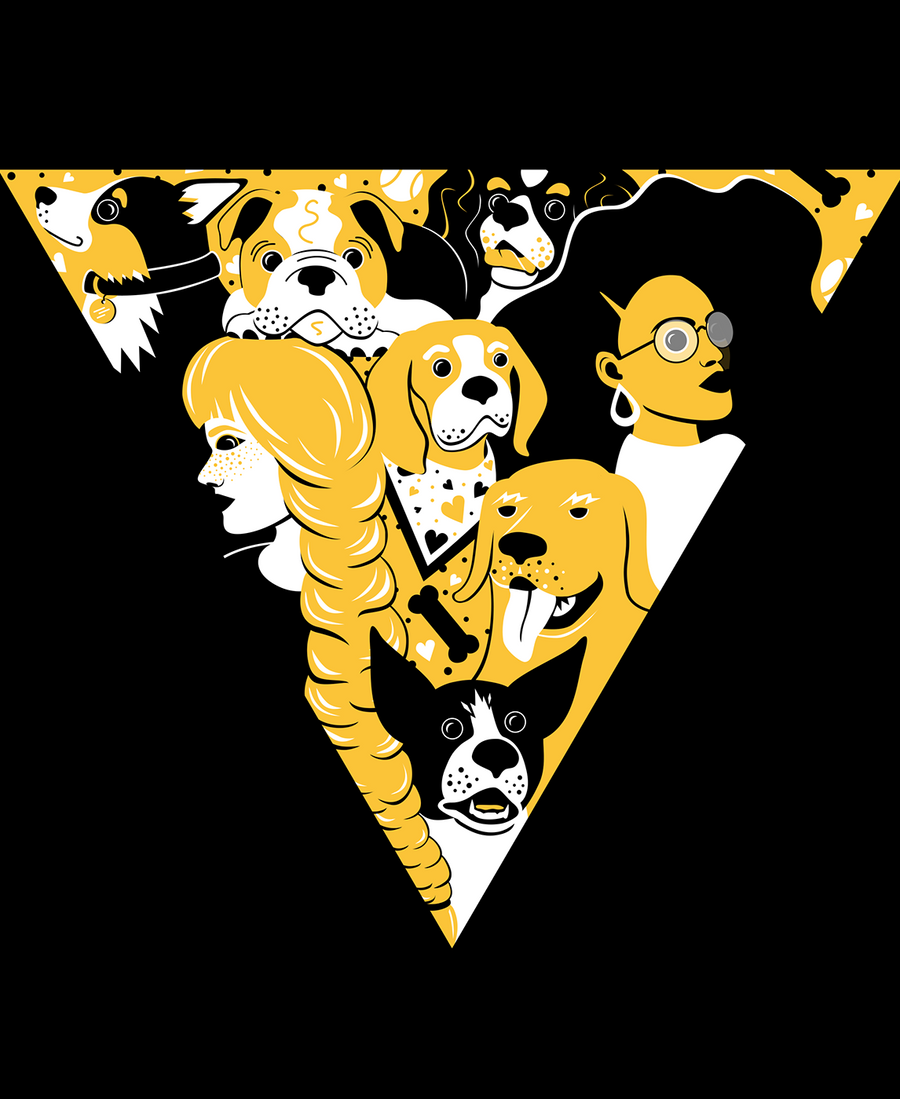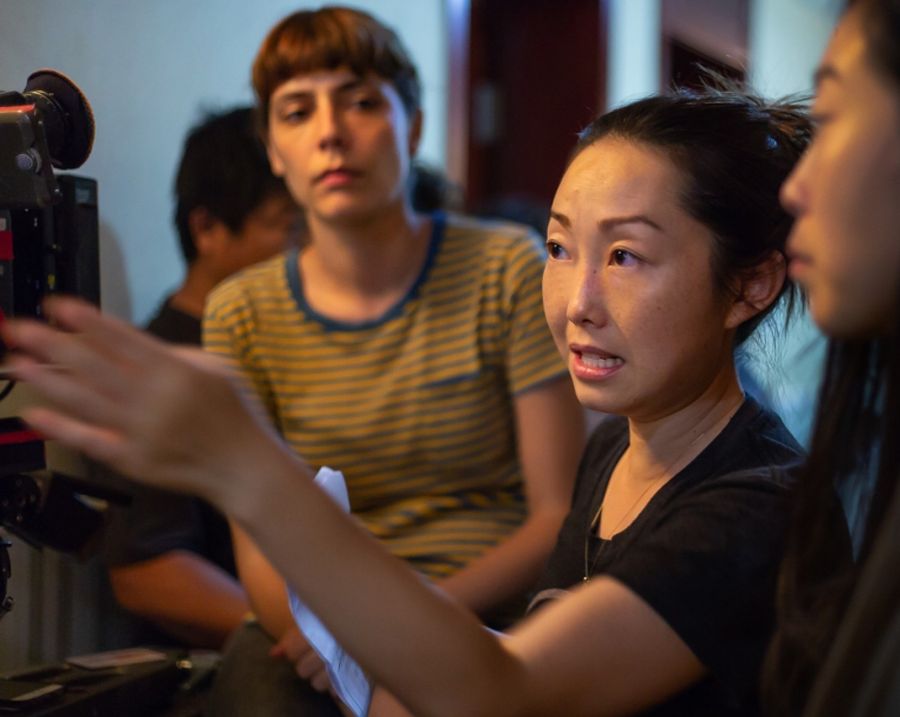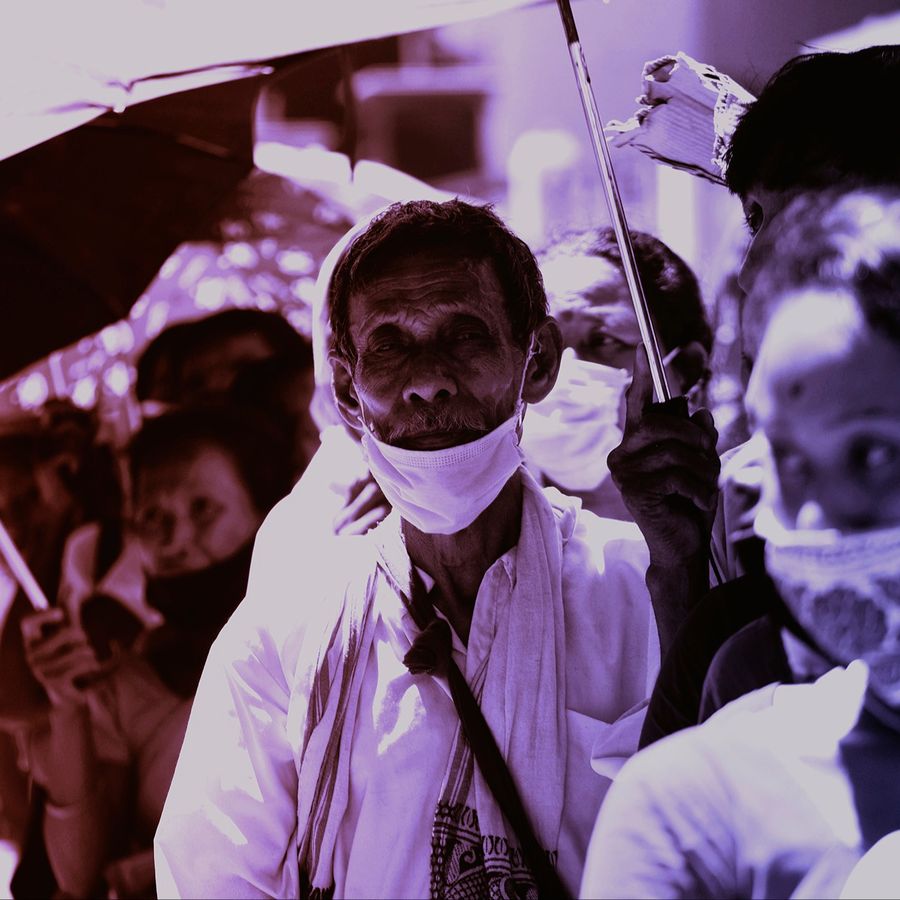Cover and Header Photo: "Dirty" / Courtesy of SXSW and Matthew Puccini
Following the unprecedented cancellation of SXSW by the City of Austin due to concerns surrounding the coronavirus, Amazon Prime Video and SXSW teamed up for the SXSW 2020 Film Festival Collection, streaming now through Prime Video. Starting today through May 6th, Prime users in the U.S. will be able to view a collection of features, series, and shorts that were selected to screen at this year’s festival. Within the collection are a variety of stories that showcase unique perspectives on the LGBTQIA+ experience, ranging from topics from gender identity to sexuality. In a time when the demand for authentic queer stories is stronger than ever, the accessibility and visibility of these films are paramount to not just empowering LGBTQIA+ storytellers, but uniting audiences of all identities.
Here, FTW connects with the filmmakers behind the queer stories streaming on Prime Video. Read on as they open up about their inspirations, filmmaking processes, and how they want their stories to leave a mark for posterity.
Camila Urrutia, Director of Gunpowder Heart
Gunpowder Heart is the story of Claudia and Maria, two women whose lives and relationship abruptly change when they suffer a brutal attack.
"I am Guatemalan filmmaker and actress. I am part of a generation that was born during the civil war. We are the "sons and daughters of the war" that grew up in Mexico during the eighties. Many of us decided to study film and return to Guatemala to tell the stories of this small and turbulent country. I want to voice the story of women in order to empower them and further their participation in society.
I returned to Guatemala in 2006 after my studies in film in Montreal and Paris. I quickly became involved with several women's groups. I began documenting the work of Actoras de Cambio (www.actorasdecambio.org.gt) a collective of feminists that facilitates healing processes with indigenous women survivors of sexual abuse during the armed conflict. I made several short documentaries on the testimonies of these women and their creative endevours in order to find peace and justice. This work helped me to understand how the culture of sexual violence prevails in countries like Guatemala.
Parallel to my documentary work, I realized that no one was telling the stories of young women in this city. So I made three short films about the adventures and mishaps of female characters. These shorts were characterized by humorous situations. I had an increased interest in acting and started to take all the acting workshops I could. I felt this gave me a further understanding on what acting is and could help me as a director.
The experiencing of theater acting was so enriching that we formed with other four colleagues a theater colletive called "Siluetas" (Silouhettes). We were four lesbians that wanted to research what it was like for other lesbians to live a conservative society and then make plays about that. We recieved grants that enabled us to make two plays. "Afuera" (Out) was about how lesbian relationships did not escape heteronormative romantic love. The second one was "Disidencias" (Dissents) which told the real life story of a transman and a transwoman in Guatemala. During four years we toured Central America, Mexico, Colombia. It was during this time that I started to write "Gunpowder" as an urge to show the world what it is like to be a young woman in post-conflict urban context.
It is my voice and the voice of many women that is reflected in this project. I am proud to say that it is the first film produced, directed and starred by young women in Guatemala. We can do it!"
– Camila Urrutia
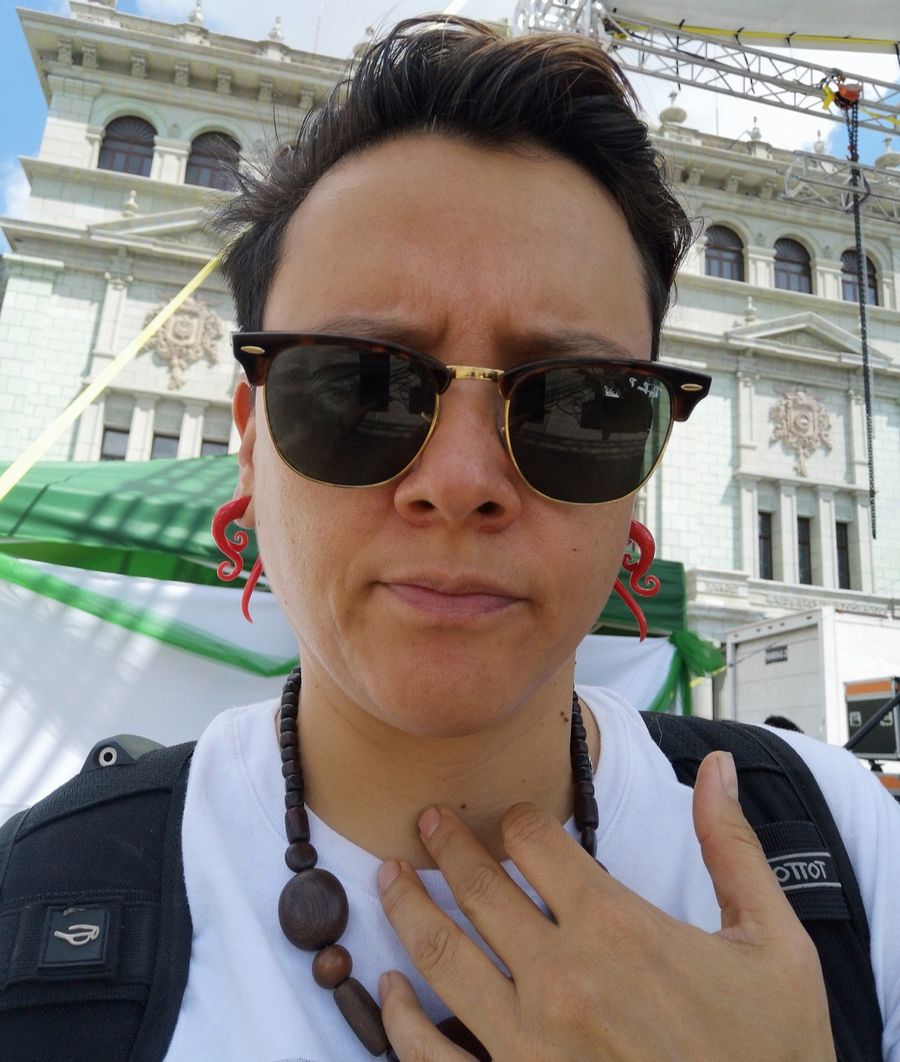

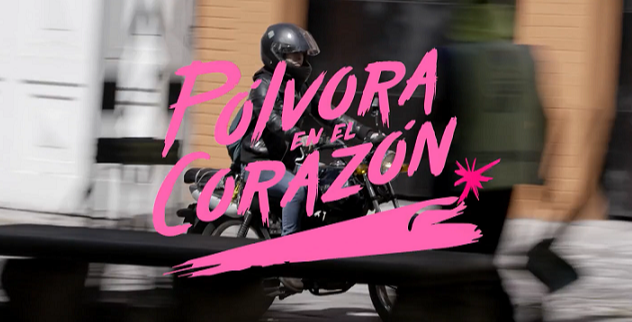

What personal experiences did you draw on in order to make this film?
[The film] kind of retells anecdotes of my life. I really researched and tried to remember all these things that happened to me as a younger woman growing up in Guatemala City, in a very conservative Christian country. I wanted to tell a story about young women in Guatemala that has never been done before, from the perspective of a lesbian woman who [has unrequited] love for another woman. I also wanted to tell a story about women confronting sexual violence. This is something that happens a lot in the world. It’s very important to relate stories from other parts of the world and how we live it.How did you prepare to bring this story to the screen?
I did a lot of rehearsals with my actresses. This is the first time they made a feature film, so we had to become friends. We did acting and dance classes and partied. I also worked with a local filmmaker from Guatemala and we looked through a lot of films. I was inspired by the Dardenne brothers and Ken Loach and the way they tackle social problems [by focusing on] the characters and their flaws and desires. We also did a lot of camera tests to [capture] that grittiness of [Guatemala City] with the director of photography.
How was your production process?
We had a very small crew, with our producer Inés Nofuentes. Locations were easily available. We had a pre-production of five weeks, just for rehearsals and acting exercises, so the production itself was very smooth. We made the film in just four weeks. We always had a police car next to us because we needed protection from bandits because we had expensive equipment. We worked a lot of nights. Filmmaking is so much fun. It's so hard to get there, but it's so much fun.
Was it difficult to find funding for the film in Guatemala? What lessons did you learn along the way?
It took us almost five years to fund the film. There's not an industry here. It's a very tiny community and most people [work] in advertisement production. My film was funded partially by the government; for the first time ever, a small grant was given to filmmakers. Then we had crowdfunding, which is a lot of work. It's just too much work for the money that it is gained, especially in Guatemala where there's no there's no tradition of funding the arts.
Try to make the script as clean as possible and try to plan ahead as much as possible for a quicker shoot. Retakes are very expensive and very complicated. In terms of funding, just try to make really good friends with people and try to help people out so they can help you back. Reciprocity.
Daniel Antebi, Director of "Soft"
"Soft" is about a queer teenager who struggles to untangle himself from his abusive martial arts coach.
Daniel shares stories about unsettling realities. Born in Mexico City, Daniel moved between Miami, London, and Washington He attended NYU’s Tisch School of the Arts, studying filmmaking. Afterwords, he help create films for the UN, RFK Human Rights Foundation, and Black Lives Matter. He was a 2019 Sundance Ignite Fellow and a 2020 Sundance Screenwriter’s Intensive Fellow. His work has premiered on Booooooom TV and Director’s Notes. His most recent short, SOFT, was an official selection of SXSW 2020. He is currently developing his debut feature film ON THE MAT.
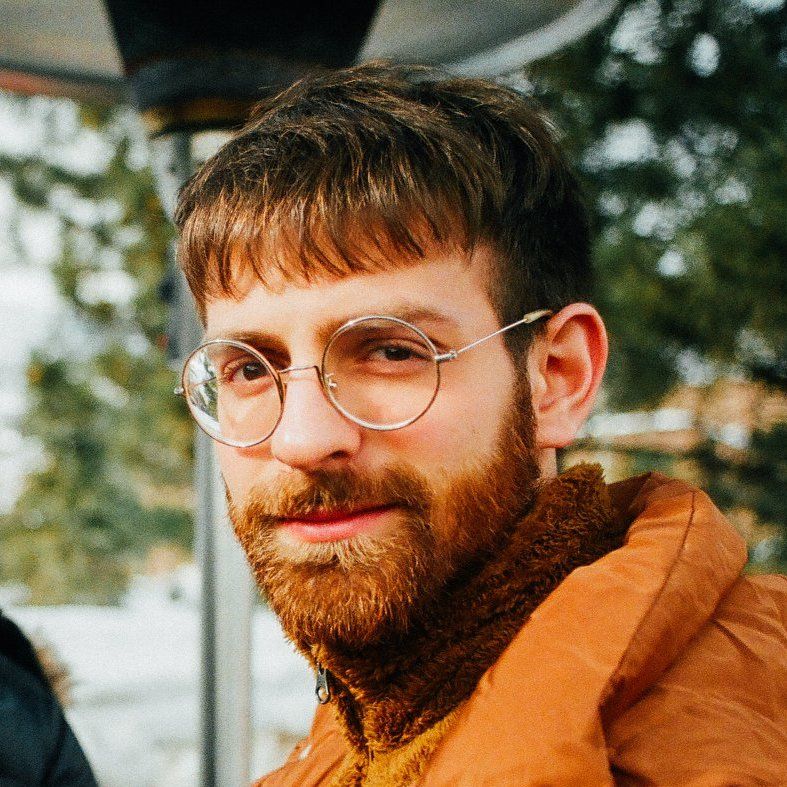

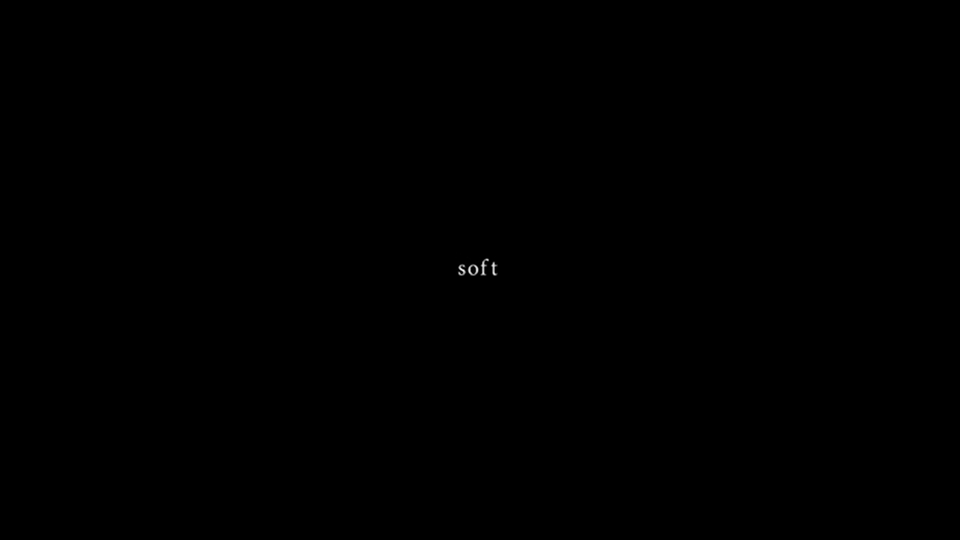
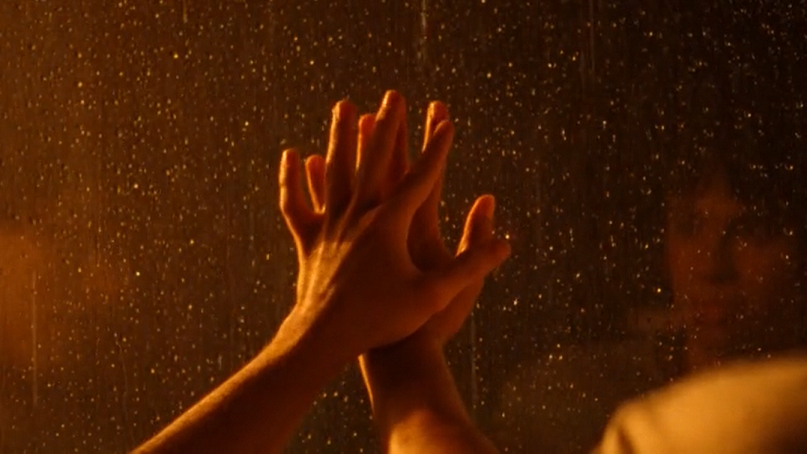
How did you begin to approach the story for “Soft”?
The story comes from true events and feelings that happened to me. I was assaulted when I was a teenager, right as my sexuality was developing and I was trying to figure out do I like guys, do I like girls, do I like both? Do I just like people? Because it was a guy who did this stuff to me, who assaulted me, it closed me off to my attraction to men. Not only did it foreclose my queerness, so to speak, it also closed me off to the softest parts of me. Slowly over time, as I shared story, I realized that men who are aren't even queer, women who have been through assault, and people without that burden of assault have had a point in their lives where their softness or vulnerability became closed off. Especially for men; we're taught to shut that down, that being vulnerable is weak. So I saw the short as a way to call to all those experiences. The question I wanted to begin to ask is how do we untangle trauma from the potential to be vulnerable.
Did you have to make any changes to your own lifestyle in order to make the film?
A majority of the funding is out of my own pocket. I had an editing job for a few months, for like half the year, and I moved back home during that job. Money that would have gone for rent went to the movie. And then there was a decent chunk that came from the Sundance Institute. I'm a Sundance Ignite fellow from 2019. So they have a grant called the Sundance Ignite grant. I'm super grateful to them, they're amazing.
This film depicts very sensitive subject matter; how did you balance the tone of the film with the tone of the set?
Some directors who make serious movies like to have really serious sets. But I think making movies should be a good time. We have one of the coolest jobs in the world where we get to basically be in a sandbox and make castles. So my goal on set was, you know, to try to create a vibe where people feel like people and not like objects. I'm insanely grateful to the crew.
Of course, you know, there were really intense moments on set. I had a crew member come up to me during lunch and he said to me, “My friend brought me onto the project. I didn't read the script or anything. But I've been slowly realizing what we're making and it's blowing my mind. I actually went through something similar.” We laughed about it, and that’s beautiful too—that we could laugh about it.
What is your ultimate goal for the short?
I want queer folks who have been assaulted, or anyone really, to feel represented in [“Soft”], in a sense that [the film] addresses both their beauty and their fractures. I want their feelings to be seen; I want them to feel connected. They're not alone. Because how could they be alone if someone else made something that captures what they're feeling?
Karen Bernstein, Director of I'm Gonna Make You Love Me
I’m Gonna Make You Love Me is the tragi-comedic tale of one man’s search for self-acceptance, a journey that included tabloid celebrity, Tupperware parties, and two coming outs – first as a trans straight woman named Tish, then as the gay man named Brian that he was born to be.
A veteran documentary film, television and radio producer, Karen Bernstein has recently added Director to her nameplate on life’s dinner table. In keeping with her arts and culture career making biographical documentaries, Bernstein completed and premiered the festival favorite, I’m Gonna Make You Love Me, at DocNYC2019. This madcap documentary biography on one person, two lives between two same-sex weddings, is included in the unprecedented SXSW2020 10-day virtual festival on Amazon Prime. In 2016 when festivals were still held live and with crowds, Bernstein co-directed and produced, Richard Linklater – dream is destiny , which premiered at Sundance, screened in the festival favorites section at SXSW, and toured internationally before making its way onto the PBS’ American Masters series that same year. 2015 saw the release of a Galán Inc. documentary that Karen Bernstein co-produced with Latino Public Broadcasting, Children of Giant.
In her role as a series producer for American Masters and producer of Ella Fitzgerald – Something To Live For (1999), Bernstein received a national Emmy award for Outstanding Non-Fiction Series. For producing Lou Reed – Rock and Roll Heart (1998), she received a Grammy award. In 2000 she co-produced American Masters/ Juilliard (2002) and American Masters/ Clint Eastwood . Her work has been screened at over 100 international film festivals including Sundance and Berlin. Body of War was produced with Phil Donahue and Ellen Spiro, toured film festivals around the world, and was shortlisted for an Academy award in 2008. The ITVS funded film, Troop 1500 , also did an extensive tour around film festivals both in this country and abroad and was broadcast on Independent Lens in 2006.
Both Are The Kids Alright? and Producing Light have won Emmy awards in Texas. Her web video for Etsy.com on the craft movement in Marfa conjured over 250,000 hits on the Etsy website and was re-tweeted on BoingBoing and Huffington Post in 2010. transFIGURATION, a documentary program for PBS on a collaboration between the photographer, Rino Pizzi, and 12 Texas-based artists, was broadcast in May, 2014. With the high definition satellite TV series, Gallery HD, she produced two documentaries about two Texas artists and groups, Julie Speed and the innovative gallery, Ballroom Marfa. Her short film on Elizabeth Streb (PopACTION) , dancer and choreographer, was awarded a New York State Council on the Arts grant.
Current projects include: Patina (a short film on memory), biographical shorts on Nelson Sullivan and Michael Musto, and a sequel to Ellen Spiro’s film, Troop 1500.
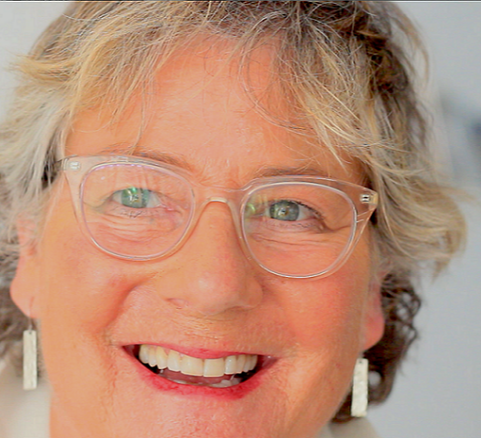
Nevie Owens, Co-Editor and Co-Producer of I'm Gonna Make You Love Me
"In the beginning, I honed my skills by making bad movies shorter; now, 18 years later, I have had the pleasure of working with acclaimed directors and on projects I am proud to show my grandparents. Whether it’s a music video, short, or feature I approach the project with enthusiasm and with the right amount of creative vision and anal retentiveness…every frame counts! I got my first taste of the industry with a STARZ internship my final year at the University of Denver, where I was a communication/philosophy major. Upon graduation and focusing on film, I landed an assistant editor position on Before Sunset under Sandra Adair. My first feature as lead editor was Kat Candler’s directorial debut, Jumping Off Bridges. Some other key credits include: Mitch Schultz’s ground breaking documentary, DMT: The Spirit Molecule, Matt Muir and Chris Ohlson’s, Thank You A Lot, and the genre bending feature, The Teller and the Truth. I came full circle editing the much anticipated Louis Black/Karen Bernstein documentary Richard Linklater: dream is destiny. My most recent film, I'm Gonna Make You Love Me just premiered at DocNYC and is playing as a "festival favorite" at TBA festival 2020. My favorite movie is Delicatessen; I am uncannily good at cribbage, and had perfect attendance in high school."
-Nevie Owens
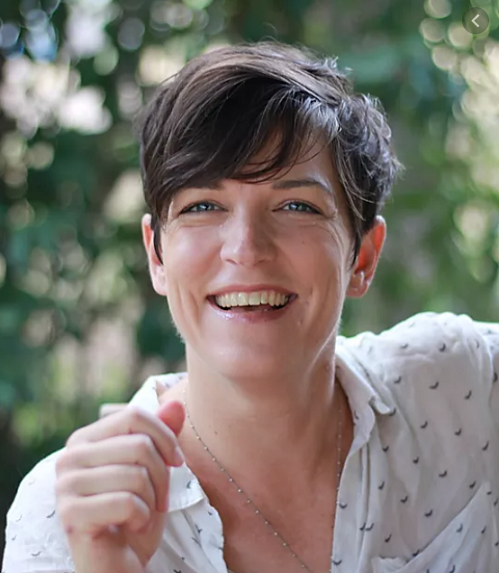
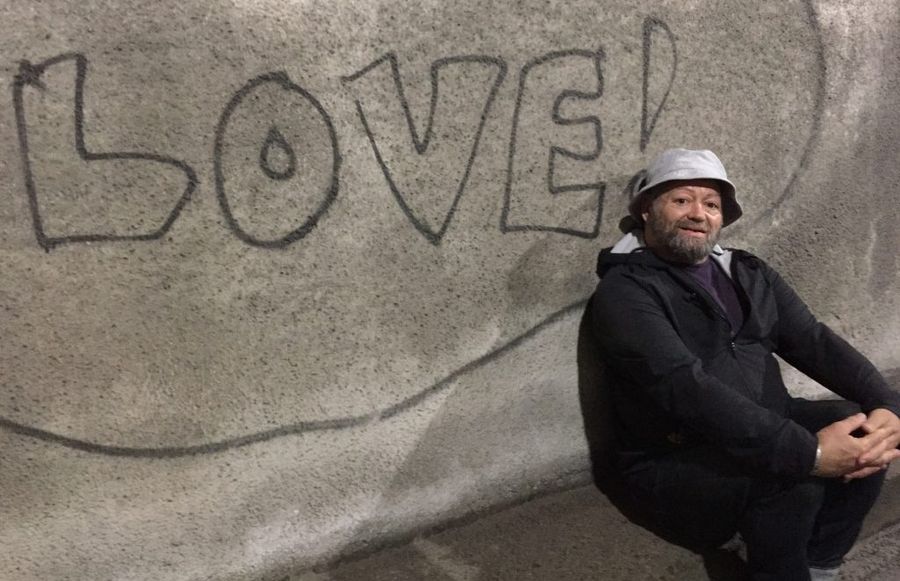
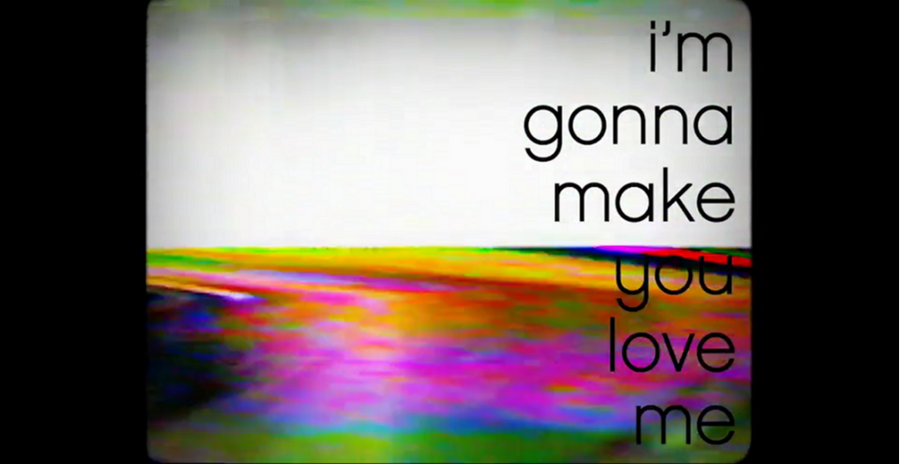
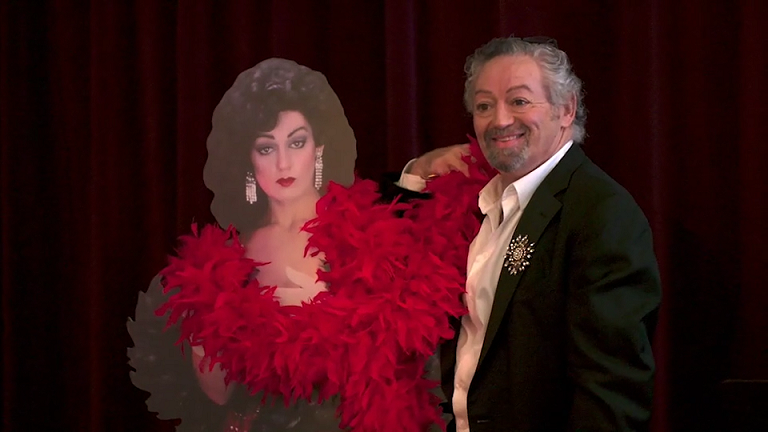
How did you first meet Brian, the star of the film? What conversations did you have that eventually convinced you to make a film about him?
Karen Bernstein: I never knew Tish, but I knew Brian. I was introduced to him in 1993 by a woman that I was dating at the time. He came to my birthday party and we just instantly clicked. I was kind of still freelance material. Anyway, I had time on my hands. Brian needed to get his driver's license in 1993, [so I drove] him to Red Hook to have his driver's test again. There was no GPS or anything like that. We were working from little maps and it was just a nightmare. We got incredibly lost. Then Brian just started telling me stories like, "Oh, see over there. That's where when I was when I was a sex worker, I used to pick up Hasidism. That was a popular spot." In the course of the two hours that we were getting lost in Brooklyn, I heard his whole life story. That just started a very long friendship which continues to this day. Click to 2014: I got in touch with Nevie who’s an incredible editor and collaborator and I started shooting interviews. Nevie really [encouraged] me to just tell the story.
You mentioned how you are close friends with Brian. Why did you choose to structure the documentary without touching too much on your personal relationship with him?
KB: The main precepts that I had going into this was I didn't want it to be a personal documentary. I really have a pretty deep and long standing relationship with Brian. I was his representative on all insurance forms when he was HIV positive and was very sick. So it could have been a personal documentary. But Nevie and I discussed it, and I wanted to keep the integrity of it being his story, not complicated with my telling of it. I have many strong feelings about the queer community, and I've been queer my entire life, but I didn't want it to become what I would call a political soapbox film. [We didn’t want to] water down the whole story.
Securing all the interviews and archival footage must have been a feat. How long did it take to complete the documentary?
KB: They say that the average length of a serious independently produced documentary is about seven years and so to that extent we fall right into step. This is really the first film that I've decided to do completely out of my own pocket, which is part of the reason why it took so long.
Nevie Owens: We did take some time off due to funding. That really gave us a chance to step back and figure out what story we want to tell. Ultimately, it became about love and self acceptance. We challenge the outdated and socially imposed notions that we have on gender and binary masculinity and femininity—there is room for everybody.
How have audiences received the film, and how do you hope it impacts their perception of people in the LGBTQIA+ community?
KB: The moment that I really knew that we had an important film was when we did a rough cut screening at a friend's studio. It was a very well-crafted crowd [of all different identities]. These people didn't say, “Oh, I didn't relate to the story because I'm not queer.” [Their comments were about] how they felt for Brian, and that's when I knew that we were okay.
NO: I want this movie to be inclusive. It's one person's story, but we can all relate to it in some way. I'd want my grandparents and my parents to walk away having a greater understanding of what I went through growing up, and that love isn't all that we need to be accepted.
Kate Cox, Director of "Vert"
“Vert” is about an open minded couple celebrating their 20th wedding anniversary by venturing into the Virtual world of "Vert" together. Vert presents them with a character that is their ‘ideal self,” which proves to be a re-awakening for them.
Kate is a freelance writer and director based in London originally from Yorkshire. She graduated from Nottingham Trent University with a First Class Hons in Fine Art. Kate went on to work as assistant art director on a number of features before moving to London to hone her photographic eye, assisting editorial and portrait photographers. Kate began directing her own work in 2016. Kate's aim as a writer/director is to unearth compelling stories that represent the under-represented and deal sensitively with home truths. Kate's first short, sci-fi drama, VERT, 2019, stars Nikki Amuka-Bird, Nick Frost and Olivia Vinall. VERT explores ideas of identity through a V.R that shows the characters "ideal self". What is supposed to be a sexual reawakening for Jeff and Emelia, celebrating their 20th wedding anniversary, becomes the unearthing of Jeff's secret. VERT premiered at SXSW 2020 and Encounters and Aesthetica film festival in the UK. Kate is currently in pre-production for her second short TORR and has her feature script in the early stages of development.


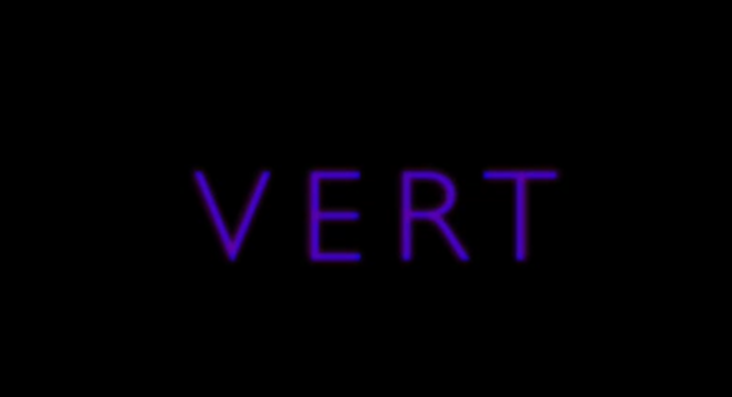

What was the “inciting incident” that inspired you to make this short?
I had a couple of ideas knocking around my head and after I met Nick Frost, “Vert” poured out of me. I wrote it with him in mind and so I was thrilled when he replied to my email with 'I'm in!' I wrote it in one sitting, and then did a series of drafts playing with the structure and dialogue.
How did you make sure that the story remained authentic to the transgender experience?
I asked a trusted friend who is transgender to read it and give me her opinion. That was a scary moment but to my delight she loved it and that gave me the drive to pursue it further. Later, when Nikki Amuka-Bird came onboard, she had some wonderful insights that helped me develop her character further. It was essential to show a relationship where Jeff would be supported once his truth is revealed and I knew I wanted to make sure the casting process was as inclusive as possible.
How would you want your short to speak to viewers in the LGBTQIA+ community?
I guess it will speak to everyone differently but I would like it to provide hope. I recently received a beautiful email saying that “Vert” helped them start their process of transitioning, and that's more than I could have wished for.
Based on your experience of making “Vert”, do you have any tips for other filmmakers to get their film off the ground?
We begged and borrowed shamelessly. No one got paid and everyone worked their asses off! I am gratefully indebted to a lot of talented people now. My tip would be to believe it's possible, but also get real; think on how to simplify your idea and to concentrate on the script.
Matthew Puccini, Director of "Dirty"
"Dirty" is about a teenager who cuts class to spend the afternoon with his boyfriend. Things do not go as planned.
Matthew is a Brooklyn-based filmmaker. His short film Dirty premiered at the 2020 Sundance Film Festival and was an official selection of the 2020 SXSW Film Festival, where it received a Special Jury Award for Acting. His short film Lavender premiered at the 2019 Sundance Film Festival, was acquired by Searchlight Pictures for an Oscar-qualifying theatrical run and was nominated for Vimeo’s Best Drama of 2019. '
Matthew is a 2018 Sundance Ignite Fellow, a member of the 2017 New York Film Festival Artist Academy and a Creative Culture Fellow at the Jacob Burns Film Center. He was selected as one of Filmmaker Magazine’s 2019 25 New Faces of Independent Film and as one of Indiewire’s 25 LGBTQ Filmmakers On The Rise. He is currently developing his first feature film.
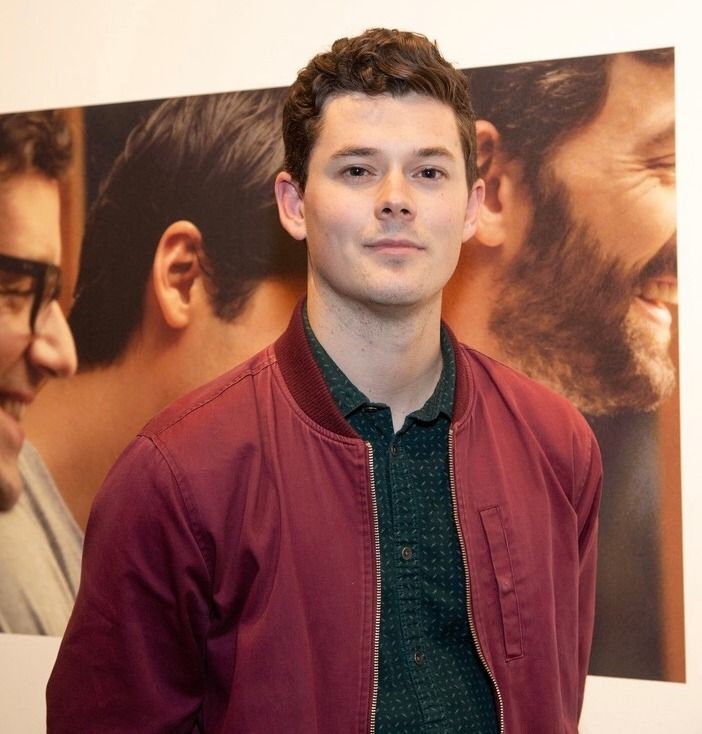
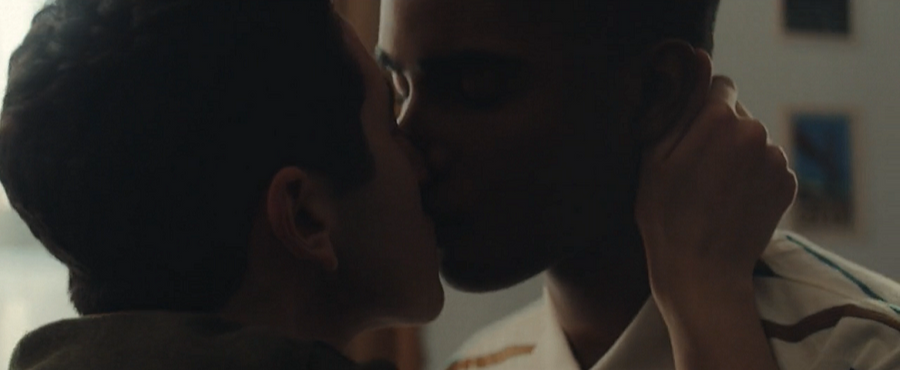
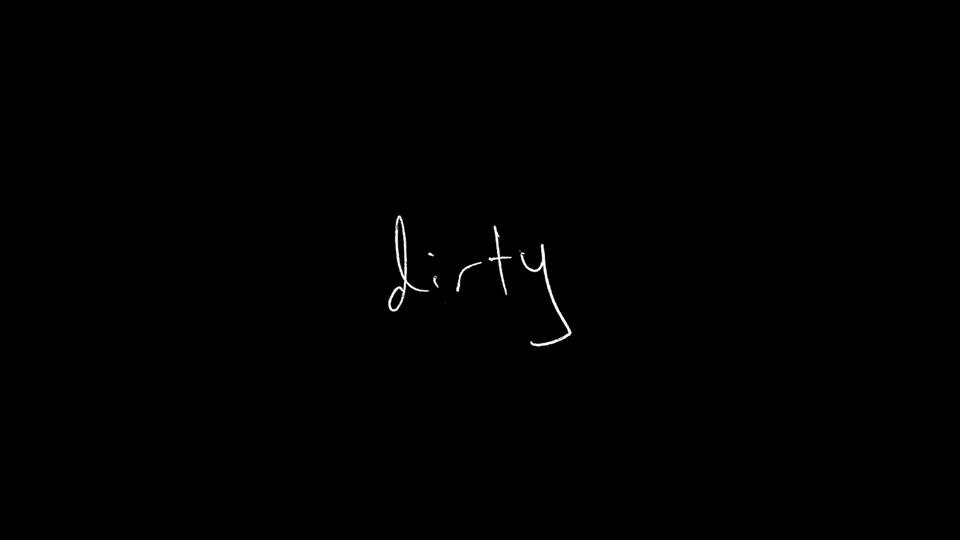

Why was it important for you to make “Dirty”?
I had been thinking a lot about the things that I wish I had known going into my first couple of sexual experiences. I was very naive going into them as a gay man and that was in large part because in high school, queer people weren't a part of the conversation around sex ed. It was really important that the film is both honest about how awkward and vulnerable a first sexual experience can be, while at the same time being very sex positive.
What was one of the biggest challenges to getting the film from script to screen?
The biggest hurdle, as with all my films up until this point, has just been finding the right actors. I wanted to make sure that we [cast] young queer people who could bring the level of vulnerability and nuance to the roles that I was looking for. My casting director and I reached out in unconventional ways to find these two actors. That took a long time, but it's completely worth it. The film is successful because of how good Morgan Sullivan and Manny Dunn are.
What was the tone of your set?
We shot for just about three days and it was a really lovely experience in that a majority of the crew was queer. We all felt really excited about getting to tell a story like this because a lot of our experiences overlap with it in some way. The environment on set was just really compassionate and it felt very safe since we were making something that's this sensitive.
How did you find funding for “Dirty”? In your experience, what are the best avenues for emerging filmmakers to find funding?
We were supported by an amazing program called creative culture at the Jacob Burns Film Center, which also supported my last film. It's a really great program for emerging filmmakers in the Tri-state area. We also were able to secure a few pieces of funding from a few small production companies. These were companies that I had met or had interactions with through attending festivals with my last short film.
Realistically, crowdfunding is gonna always be the best way to get money on your timeline. There are grants out there that are helpful for filmmakers, but the amount of time it takes to apply to them and to hear back from them and the odds of actually getting them sometimes make it not worth it. If you have a decent network of family and friends, you can do a crowdfunder campaign that can be successful. The biggest thing is to make something without going massively into debt. You can make a successful short for under $10,000 if you write it a certain way. The key is to just be making work as much as possible.
Is there anything that surprised you about how people have responded to the film?
One thing I've been happy to see people responding to is how kind the main characters are throughout the entire experience. Seeing kindness on screen can be very profound, especially in a situation where we're not expecting it. It kind of proves how starved a lot of queer people are to see themselves represented in ways that are postive.
